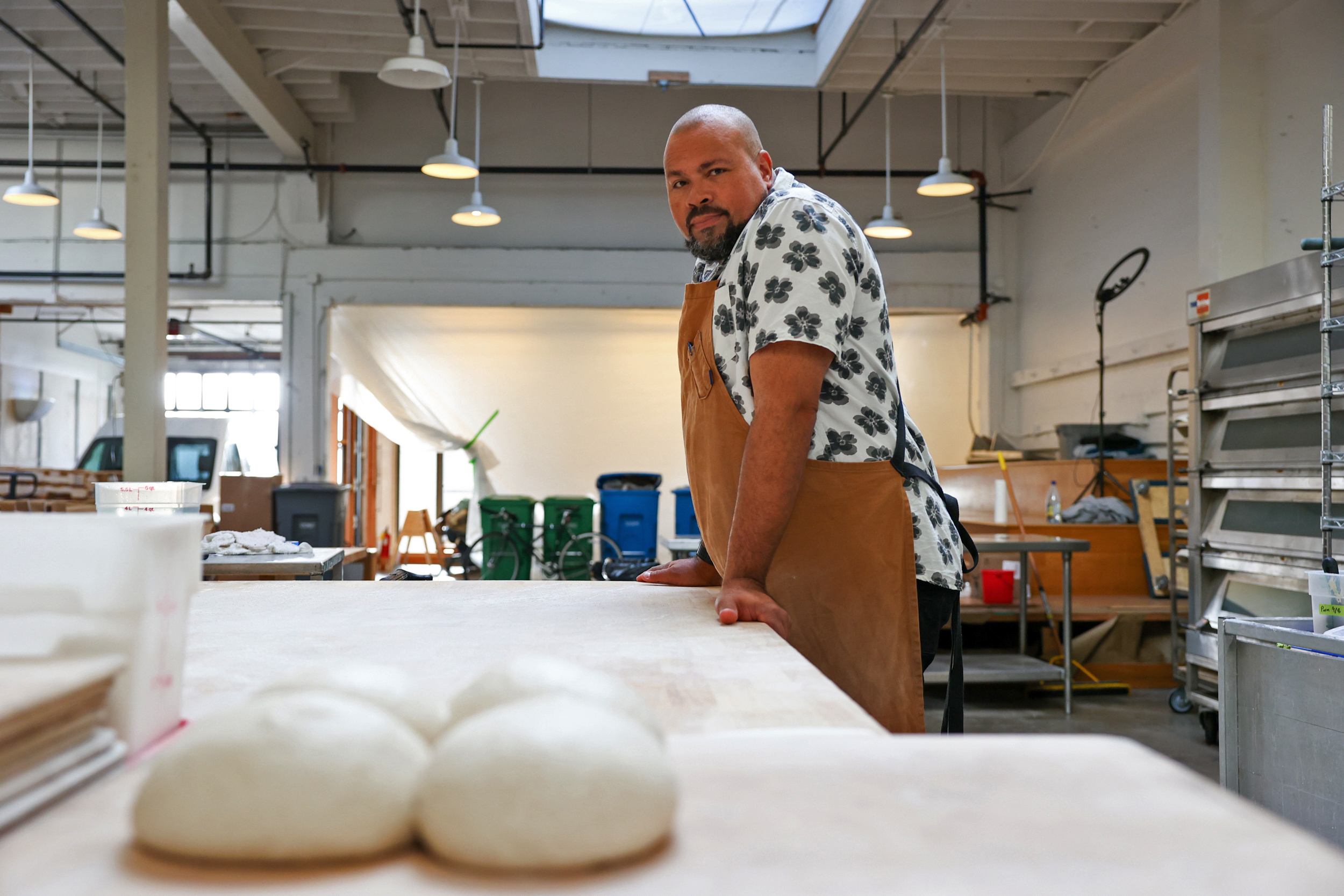Azikiwee Anderson charges $12 for a loaf of his “OG Sourdough.” That might give some customers sticker shock, but he has his reasons.
For one thing, Anderson employs a staff of around 20 at his SoMa business, Rize Up Bakery, and he said he tries to pay them a decent wage. Of course, the cost to operate a brick-and-mortar food business in San Francisco is inherently high. But he also moved in months after inflation began to wreak havoc on the global food system, driving up the cost of his main ingredient—certified organic flour.
In 2022, the price of flour increased about 20%, according to the USDA. That means each bag of flour costs around 40 cents more than it did in 2021. Anderson said that since 2021, his cost for a 50-pound bag of flour has risen from $50 to around $67.
Covid, inflation, the war in Ukraine and drought conditions have created a perfect storm of economic factors that have rattled the food system, revealing its vulnerabilities. When Russia invaded Ukraine in February 2022, the cost of wheat surged globally, hitting a 14-year high by April.
Anderson told The Standard the price increase was seriously disruptive. “I was not ready for it,” he said.
According to current projections, consumers can expect that things are going to get worse before they get better. The Consumer Price Index predicts a 5% to 6% increase in bakery products in 2023. Demand is increasing, too. MarketWatch reports that the global organic wheat flour market is expected to rise at a significant rate between now and 2028.
Anderson has taken some measures to make sure he doesn’t waste food. By only making as many loaves as people order, he doesn’t have to charge extra to offset the cost of food he throws away. But even though this wholesale approach mitigates the impacts of inflation on his business, he said there is another reason he keeps his prices high.
Anderson said the way he sees it, you’re simply paying for quality.
“The places I go, I really care about the staff there,” he said. “I really care about […] the quality of what they’re doing. So when I go there and they tell me it’s an extra $22, I just pay it […] because I’m happy that they’re there.”
